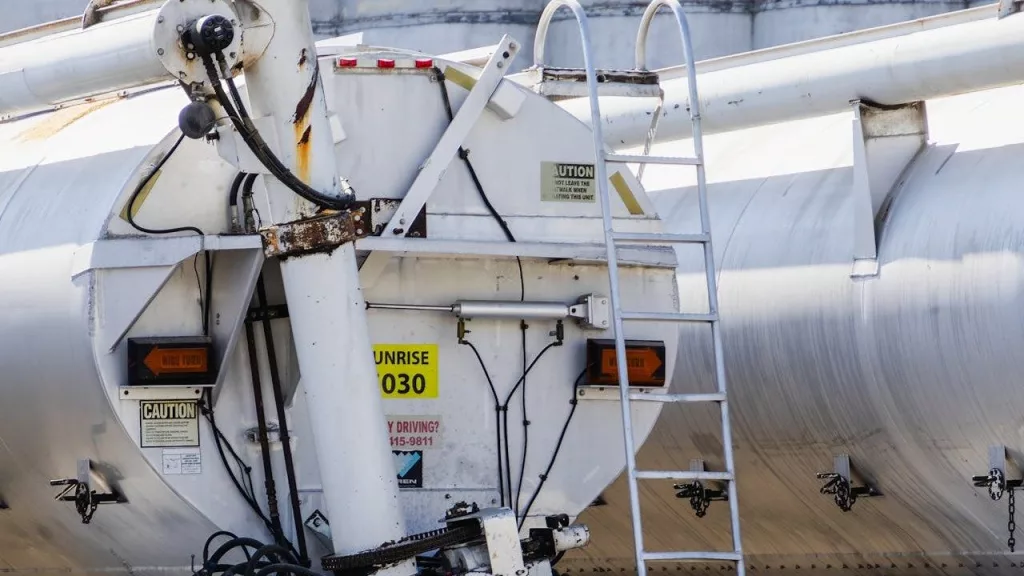SALEM, OR – A bill that would have required fossil fuel companies doing business in Oregon to pay for the downstream and multigenerational costs of their climate pollution will not move forward.
The Senate Committee on Energy and Environment Wednesday decided not to take a vote and advance Senate Bill 1187, the Make Polluters Pay Act, effectively letting the bill die in the committee.
Sen. Janeen Sollman, D-Hillsboro, chair of the committee, told her colleagues there was not enough time to dedicate to any fixes the bill might need. The bill had its first public hearing Monday.
“Good legislation requires adequate time and attention from our staff, from agencies and advocates, to ensure that it achieves its intended goals,” Sollman said. “I will continue to work in an open and inclusive way with anyone who wants to help protect Oregon’s climate. And I look forward to having those urgent conversations.”
The bill, sponsored by Sen. Khanh Pham, D-Portland, who is also a member of the committee, would have created a “climate superfund” seeded with millions of dollars in damages from the handful of companies most responsible for emitting planet-warming greenhouse gasses causing catastrophic climate change.
These include companies like Exxon Mobil, Chevron, and about 50 other oil, gas, coal and cement producers that are directly linked to 80% of the world’s global greenhouse gas emissions during the past decade alone.
Since 2020, wildfires, drought, heat waves and winter storms exacerbated by a warming planet have directly and indirectly killed hundreds of Oregonians and cost the state more than $5 billion, according to data from the National Oceanic and Atmospheric Administration.
Pham told her fellow committee members she was “deeply disappointed” they would not take a vote and that she would continue advocating for the bill in the future.
“We’ve known climate change would lead to these catastrophic disasters since at least 1981,” she said. “We have had 45 years to take action. And frankly, I think further delay in finding a way to help fund Oregonians’ recovery and resilience building, and holding the fossil fuel industry accountable, is an insult to the people who have died, and the Oregonians who are paying to rebuild their lives and their communities out of their own pocket.”
Thirty percent of the climate superfund dollars would have been set aside for the Oregon State Fire Marshal’s Office to be used specifically for wildfire prevention and response across the state, and 40% of funds would have been directed to disadvantaged communities bearing disproportionate climate impacts from greenhouse gas pollution.
It was modeled on similar legislation passed in Vermont and New York in 2024. California, Connecticut, Hawaii, Maryland, Massachusetts, New Jersey, Rhode Island, Tennessee and Virginia are considering similar proposals in their own legislatures.
At the bill’s first hearing Monday, lawmakers heard from dozens of young Oregonians, as well as seniors from the volunteer advocacy group Third Act, who threw their support behind the bill. So many people showed up to testify that a second hearing room had to be opened up for the overflow.
Just two people opposed the bill in person at the Monday hearing: Sharla Moffett, a lobbyist for Oregon Business and Industry, and Rocky Dallum, a lobbyist for the Northwest Pulp and Paper Association, an industry group representing pulp and paper mills across Oregon, Washington and Idaho.
Moffett said the bill was “sweeping” and “impractical” and that she and others were not given enough time to weigh in on it.
Dallum said the state’s Climate Protection Program, which puts a declining cap on emissions from polluters over the next 25 years already offers an avenue for polluters to pay into climate adaptation and response, via the Community Climate Investments part of the program. Those investments are essentially carbon credits companies can buy to offset some of their greenhouse gas pollution, and the money is funneled to projects that reduce emissions.
Study after study has shown that putting a price tag on each metric ton of carbon dioxide a company emits, such as a fine or tax, works at reducing emissions. Modeling from the MIT En-ROADS climate-solution simulator shows it is the single most effective policy decision any government could make to accelerate decarbonization and curb the worst effects of climate change by the end of the century.
Oregon Capital Chronicle is part of States Newsroom, a nonprofit news network supported by grants and a coalition of donors as a 501c(3) public charity. Oregon Capital Chronicle maintains editorial independence. Contact Editor Julia Shumway for questions: info@oregoncapitalchronicle.com.
